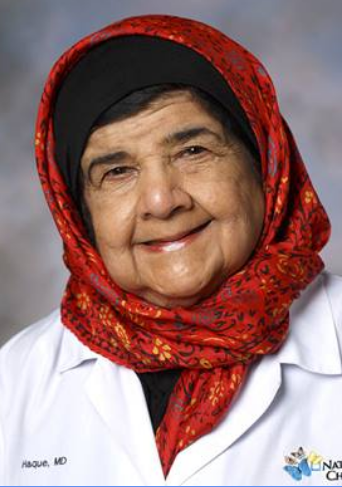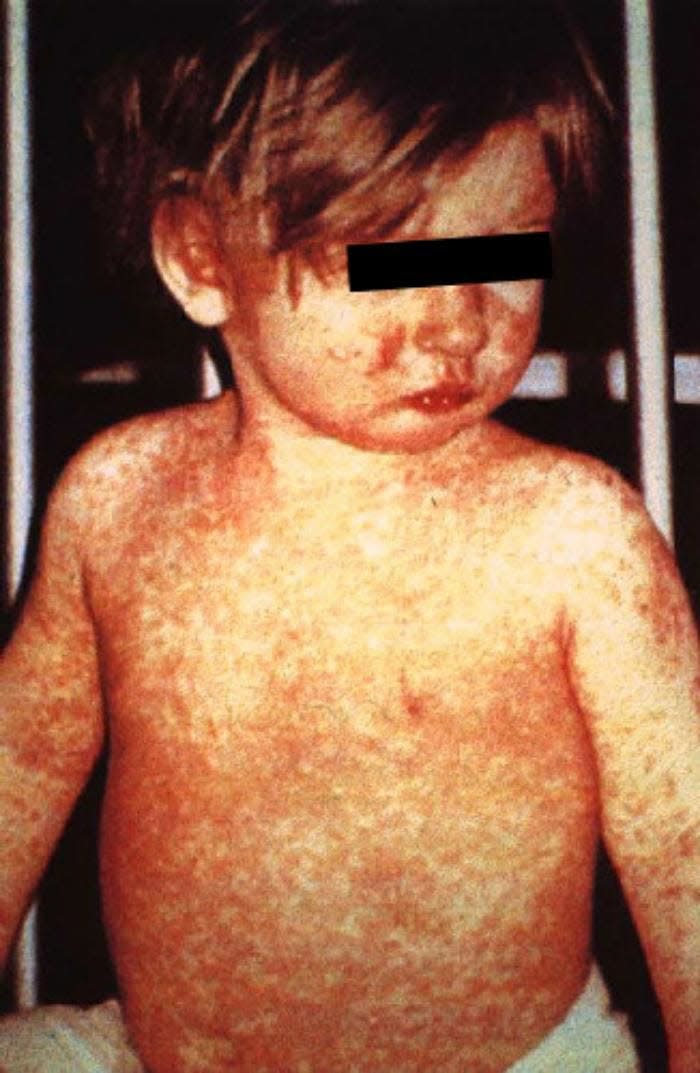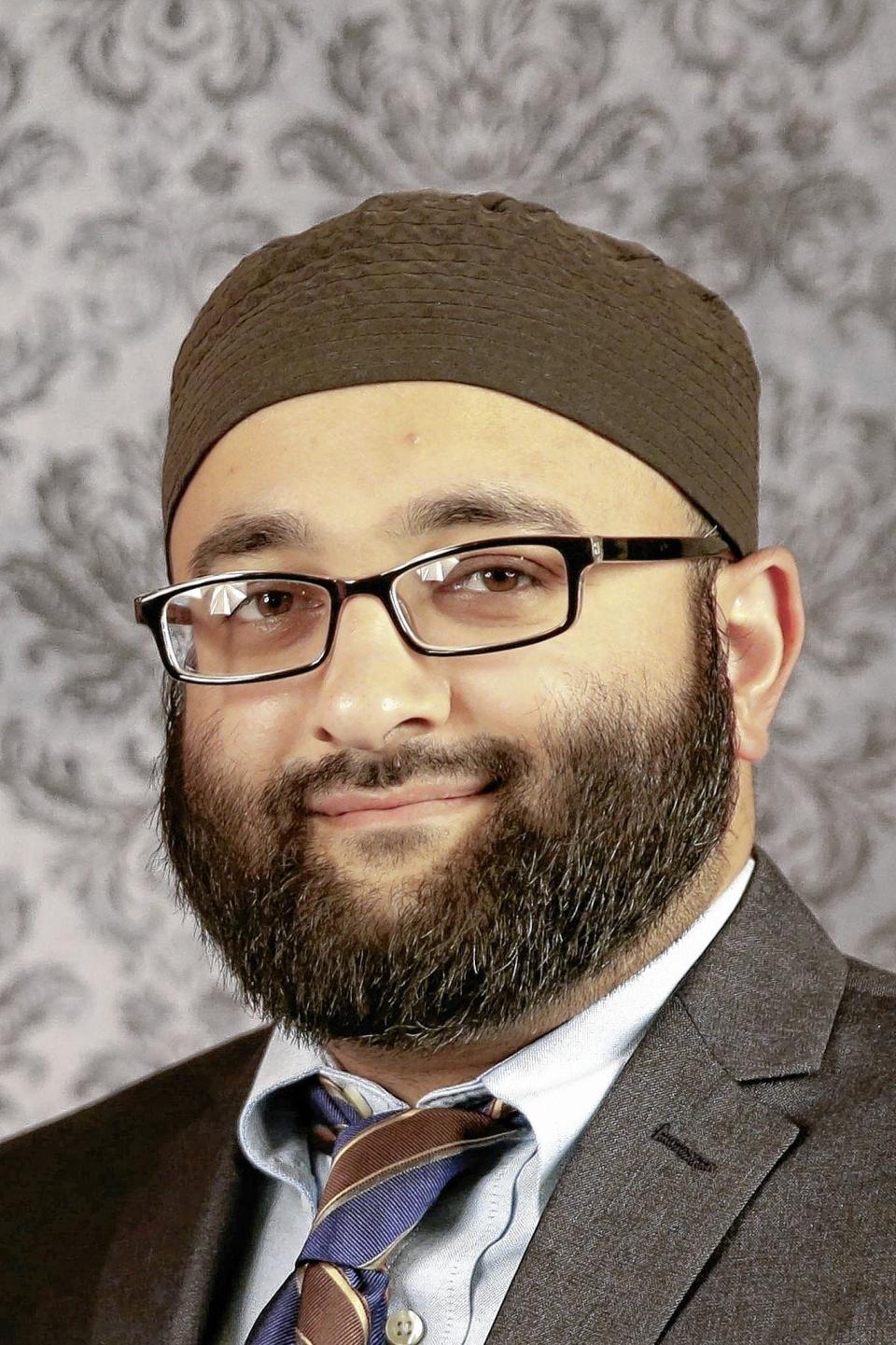Columbus leaders raise awareness about measles outbreak with new American communities
In her 50 years of being in health care, pediatrician Dr. Malika Haque has heard all kinds of reasons why parents don't want to get their children vaccinated.
There's the claim that vaccines cause autism, which has been debunked by the Centers for Disease Control and Prevention and The National Academy of Medicine.
Then there are parents who are concerned that vaccines can cause physical disabilities.
But one of the most surprising claims Haque said she has heard is that vaccines are poisonous.

"I had one mother who refused immunization, and she was new to the country and new to the culture," said Haque, who is a member of the Section of Ambulatory Pediatrics at Nationwide Children's Hospital and a clinical professor of pediatrics at Ohio State University College of Medicine. "And she said, 'My imam, my leader, told me that there is poison in it, she should not get it.'"
It was only after her son became severely ill that the mother decided to get him vaccinated.
Medical professionals and community leaders are stressing the importance of getting new American children vaccinated as a measles outbreak has affected some Somali children, said Columbus Public Health spokesperson Kelli Newman.
Since its start in November, the Columbus-area outbreak became the largest in the country in 2022.
Newman's office does not collect data on country of origin of the ill children, but does collect data on race and ethnicity. The office said Black, white, Hispanic, and Asian children have all fallen ill.
“It has affected a lot of people in the Somali community,” said Kawther Musa, a West Side resident who is a program coordinator with Heart of Ohio Family Health Center and a member of the Northeast Commission. “They have challenges in getting resources, they have language barriers, and also they are not getting the information they need about the vaccine.”
As of Thursday, there have been 82 cases, with 32 children hospitalized, according to a report from Columbus Public Health. Sixty-six percent of children impacted are between the ages of 1 and 5, and 74 of the 82 children were unvaccinated.
Haque said some new Americans develop misconceptions that make them fearful of vaccines due to a lack of education about immunizations.
"Spending time with (patients' families) is extremely important, especially when a mother or father refuses the vaccine," she said. "It's imperative that the physicians and health care providers make time for them and explain to them why they should want it."
Measles can be a dangerous, deadly disease
Although preventable through vaccination, measles is considered a dangerous and sometimes deadly disease. About one in five people in the U.S. who get measles will be hospitalized, according to the CDC, and one in 1,000 people who contract the measles could develop brain swelling, which could lead to serious brain damage.
"That is the worst thing a child can have because it could, in some cases, clear on its on its own but sometimes it causes permanent damage to the brain cells in terms of the loss of function," Haque said. "Measles infection of the brain can have lasting effects in terms of learning disabilities."
The disease is also highly contagious, as about 90% of unvaccinated individuals who are exposed to measles will become infected, according to Columbus Public Health and Franklin County Public Health. The incubation period is typically 14 to 21 days.

Haque said symptoms parents should look for if they suspect their child has the measles include watery or red eyes, fever, cough, runny nose and a rash that appears three to five days after the fever was detected.
If the child is vomiting often and can't keep any food or liquids down or develops pneumonia, they should be taken to the hospital immediately, Haque said.
Why are some new Americans hesitant to get their children vaccinated?
Like Haque, Kawther Musa believes the lack of education around the measles, mumps and rubella (MMR) vaccine can cause confusion and the spread of misinformation among parents.
Musa said more information about a vaccine should be made available when parents set up an appointment for their child to receive a shot.
"The mothers usually complain saying, 'I have vaccinated my child, and (doctors) are telling me to vaccine them again. Why do I have to do that?'" Musa said. "So, in my experience, I believe they definitely don't give enough information."
Haque said the ingredients that make up the MMR vaccine can also be a cause for concern, particularly for Muslims. Gelatin is used in some vaccines to protect vaccine viruses from conditions such as freeze-drying or heat, particularly during transport and delivery.
Gelatin is not permissible under Islamic law because it can derive from pork. But gelatin can be processed without pork products, making it halal, or permissible, to use, Haque said.
Lack of access to health care is another factor, said Ayaz Hyder, an assistant professor in the college of public health at Ohio State University.
"Sometimes they don't know where the vaccination clinics are," he said. "If they are attending public school, then they are required to get vaccinated, but sometimes, many of them do not go to public school. They go to private schools or they are homeschooled. And so, it's difficult to give them that information about the importance of vaccination."
Community leaders raising awareness, creating access to MMR vaccine

During the early days of the COVID-19 pandemic, Hyder and his team at Ohio State developed data analytic tools for Columbus Public Health and Franklin County Public Health to determine which areas around the city lack vaccination access. He is again working with Columbus Public Health for the measles outbreak to identify susceptible populations, he said.
Hyder said the neighborhoods that lack the most access are the ones that largely consist of residents of color — Northland, Linden, the Near East Side and the Hilltop.
"These are all typically the areas where we see the worse health outcomes and they continue to persist, whether it's a measles outbreak or whether it's a COVID pandemic or any other outcomes," he said. "But slowly things are getting better."
Columbus Public Health has been doing outreach and education to health care providers and the community about the MMR vaccine, Newman said. The agency is also providing daily walk-in appointments for the vaccine at its headquarters at 240 Parsons Ave.
In addition, Franklin County Public Health offers immunization clinics every Wednesday from 9 a.m.-3 p.m. at its location at 280 E. Broad St. A measles walk-in clinic will be held there Jan. 20 from 9 a.m.-1 p.m.
Meanwhile, Musa has been distributing flyers from Columbus Public Health at places like the Global Mall about the measles outbreak. She also has been meeting with Somali professionals in Ohio and Minnesota — which has the largest Somali population in the U.S. — over Zoom to discuss the outbreak and what can they do for their communities.
And Haque said she will continue to inform patients and debunk myths about the vaccines.
"It's safe; it's not related to autism," she said. "But not taking the vaccine could lead to serious problems like health issues in children and adults."
mwalker@dispatch.com
@micah_walker701
This article originally appeared on The Columbus Dispatch: Columbus leaders raise awareness with new Americans about measles

